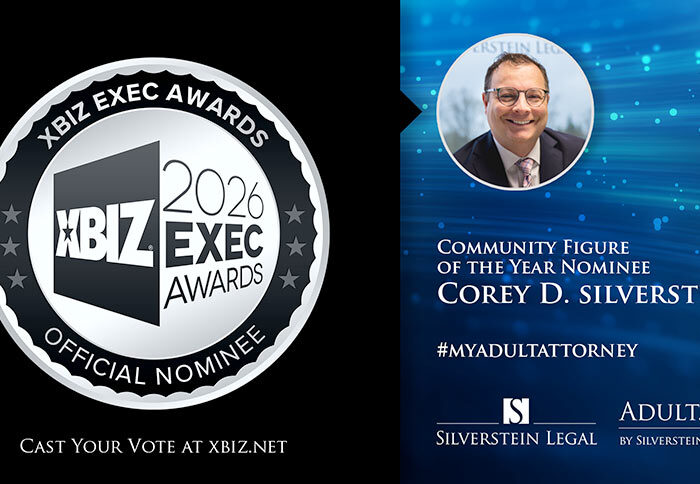Los Angeles, California – Corey D. Silverstein, the driving force behind MyAdultAttorney.com and Adult.Law, is…

In a critical decision underscoring the protections of the First Amendment, the United States District Court for the Western District of Tennessee granted a preliminary injunction against Tennessee’s Protect Tennessee Minors Act (PTMA), set to become effective on January 1, 2025. The ruling, in Free Speech Coalition, Inc. v. Skrmetti, declared that the PTMA likely violates the First Amendment by imposing content-based restrictions on constitutionally protected speech.
View the Order Granting Plaintiffs’ Motion for Preliminary Injunction here.
Key Points of the PTMA
The PTMA imposes strict criminal and civil liability on entities operating websites containing at least one-third of content deemed “harmful to minors.” The law mandates intrusive age-verification requirements, such as uploading government-issued identification or using facial recognition, for website access. Violations could result in severe penalties, including felony charges and civil damages.
The Court’s Findings
Broad and Overbroad: The Court emphasized that the PTMA is not narrowly tailored. It captures constitutionally protected speech aimed at adults, unnecessarily burdening their First Amendment rights while pursuing the state’s objective of shielding minors from harmful content.
Chilling Effect on Speech: The PTMA was found to objectively chill protected speech by forcing websites to incur substantial compliance costs or risk criminal prosecution. It also deters users from accessing protected material due to privacy concerns.
Constitutional Analysis: The Court subjected the PTMA to strict scrutiny, holding that it failed to meet the requirements of being narrowly tailored and the least restrictive means to achieve Tennessee’s compelling interest in protecting minors. Importantly, the Court noted that the PTMA diverged significantly from established obscenity standards, further exacerbating its constitutional shortcomings.
Implications for Online Content Providers
This injunction marks a victory for advocates of free speech, particularly in the digital realm, where content-based regulations often raise significant constitutional concerns. The ruling prevents immediate enforcement of the PTMA but does not represent a final resolution of its legality.
Online platforms and businesses are encouraged to monitor this case closely. While the injunction offers temporary relief, the PTMA’s ultimate fate will likely shape the future of internet regulation and First Amendment jurisprudence.
For more information or legal assistance regarding content regulation and compliance, contact Silverstein Legal today.
About Silverstein Legal
Founded in 2006 by adult entertainment lawyer Corey D. Silverstein, Silverstein Legal is a boutique law firm that caters to the needs of anyone working in the adult entertainment industry. Silverstein Legal’s clients include hosting companies, affiliate programs, content producers, processors, designers, developers, and website operators.




